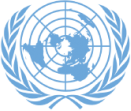Statement by H.E. Amrit Bahadur Rai,
Permanent Representative of Nepal to the United Nations,
at the Joint General Debate of the Fourth Committee of UNGA 76
New York, 22 October 2021
Time Limit: 10 minutes
My delegation aligns itself with the statement delivered by Azerbaijan on behalf of the Non-Aligned Movement.
Madam Chair,
On the agenda of decolonization, Nepal reiterates its long standing view that colonization and foreign domination under any pretext are against the fundamental principles of the UN Charter, the Universal Declaration of Human Rights and the Declaration on the Granting of Independence to Colonial Countries and Peoples.
Colonialism is an unacceptable international practice; yet its eradication has remained an unfinished business despite being one of the priorities of the United Nations ever since its foundation. It is our common responsibility to expedite the decolonization process as we continue to have seventeen Non-Self-Governing Territories (NSGTs) on our agenda items.
The General Assembly has proclaimed the current decade 2021-2030, as the Fourth International Decade for the Eradication of Colonialism. We call on parties concerned to engage in result oriented dialogues to expedite the independence of remaining non-self governing territories.
Nepal expresses its steadfast support and solidarity to the inhabitants of the non-self governing territories toward fulfilling their legitimate wishes of independence.
Pending the decolonization of NSGTs, the administering powers should promote political, economic, social, and educational advancement of their peoples and ensure the legitimate rights of those Territories on their natural resources. The socio-economic needs of inhabitants including rights to education, health, and employment should be respected and supported.
Madam Chair,
On the agenda of peaceful uses of outer space, Nepal maintains its view that outer space is a common heritage. Its exploration and use should be carried out for the wider benefit of humanity.
Usage of space science and technologies remains invaluable tools to achieve Sustainable Development Goals (SDGs) as 65 out of 169 targets directly benefit from space technologies. We look forward to the endorsement as well as effective implementation of the proposed ‘Space 2030’ agenda and its implementation plan.
Given the far-reaching applications of space, we reiterate that all countries, big or small, developed or developing, should be given equal access to the exploration and utilization of space resources. Spacefaring nations should not leave LDCs, LLDCs, and SIDS behind from the benefit of space technology.
We call on spacefaring nations and the UN Office for Outer Space Affairs (UNOOSA) to assist in technology transfer and bridge capacity gaps by enhancing the capabilities of developing nations for the balanced benefit of this global common.
We call for effective international cooperation to ensure safe, secure and sustainable use of space.
Madam Chair,
On the questions relating to information, we commend the DGC for implementing a comprehensive communication strategy for the first time in the organization.
We acknowledge the Department’s role in disseminating evidence-based information, raising awareness, and fighting false information through its ‘Verified’ initiative. Sharing of accurate, timely, and relevant information about the COVID-19 pandemic deserves special appreciation.
Nepal encourages the DGC to continue sharing widely the outcomes of UN Processes related to sustainable development, climate change, peacekeeping, nuclear disarmament, and counter-terrorism, among others with a view to informing the wider audience about the commitment of the international community toward our global agenda.
We also encourage the DGC to highlight the contributions of individual TPCCs for the noble cause of international peace and security.
We appreciate the works of UN Information Centres in publishing and translating information into 123 languages with the addition of braille and Nepali sign language.
Madam Chair,
On the peacekeeping front, Nepal takes pride in being a dependable and enduring partner in UN peace operations for more than six decades. Nepal has always responded positively and in good faith to the calls of the United Nations even at the shortest notice, always without any national caveat.
We have contributed over 151,000 peacekeepers so far, who have served with distinction in more than 50 UN missions. Currently, Nepal stands at 3rd largest troops and police-contributing country.
In serving the noble cause of international peace and security, we have lost 82 precious lives in the line of duty and have hundreds of others wounded.
Madam Chair,
Conflict areas have become more volatile, complex, and challenging with the emergence of unconventional and asymmetric threats from criminals and terrorists.
We are deeply concerned about the safety and security of UN peacekeepers. Among other things, lack of adequate clarity in the mandate, lack of adequate resources and technological enablers are placing our blue helmets in a high-risk environment. The COVID-19 pandemic has further exposed our fragilities warranting us to ensure medical capacity building in an urgent manner.
Nepal believes in continued improvement of peacekeeping. With that spirit, Nepal has supported (A4P) and (A4P+) initiatives, and recently launched Strategy for the Digital Transformation of UN peacekeeping among others.
We have always been constructively engaged in the Special Committee on Peacekeeping Operations (C-34) to devise recommendations with a view to enhancing the effectiveness of peace operations.
Nepal is looking forward to the upcoming Seoul UN Peacekeeping Ministerial Meeting, which, we believe, would be an important platform to strengthen our partnerships for better, strengthened, and technologically equipped peacekeeping.
Madam Chair,
Peace Missions cannot substitute an inclusive and nationally owned political process for conflict resolution. We have learned from our own experience of the national peace process as well as global experience as T/PCCs that peace is sustained when there is political understanding to address the root causes mainly poverty, exclusion, inequality, and injustice. Peace won’t sustain in any society without addressing these root causes.
Nepal has been supportive of a normative framework for the protection of civilians and the integration of peacebuilding components in all levels of peacekeeping operations. The participation of women, youths, and community leaders can’t be overemphasized for sustained peacebuilding efforts.
Successful peacekeeping is based on our concerted efforts. The Security Council, host country, T/PCCs, regional organizations and the Secretariat should work together to devise well-defined, pragmatic, and achievable mandates which must be focused to address the context-specific core issues.
We call for balanced, fair, and equitable representation from T/PCCs in the senior positions of the Secretariat and field missions based on their contributions.
UN peace operations must succeed in regaining and nurturing the hope of millions of people shattered by conflict. Nepal is committed to contributing to UN peace operations for the noble cause of maintaining international peace and security.
My delegation will submit a separate statement on this agenda item which will be made available through e-statement.
Madam Chair,
Nepal highly values the contribution of Special Political Missions (SPMs) in supporting the Member States in the prevention, resolution and transformation of conflict to lasting peace. We welcome the recent report of the Secretary-General on SPMs. We appreciate that Political Missions have been valuable tools to address the complex security and humanitarian environments including in Afghanistan, Iraq, and Libya among others.
We stress on the sustainable funding for the effective functioning of the SPMS.
To conclude, Madam Chair, Nepal remains committed to working with the international community to promote global cooperation on all agenda items considered under this committee. We will constructively engage in all deliberations.
I thank you Madam Chair


